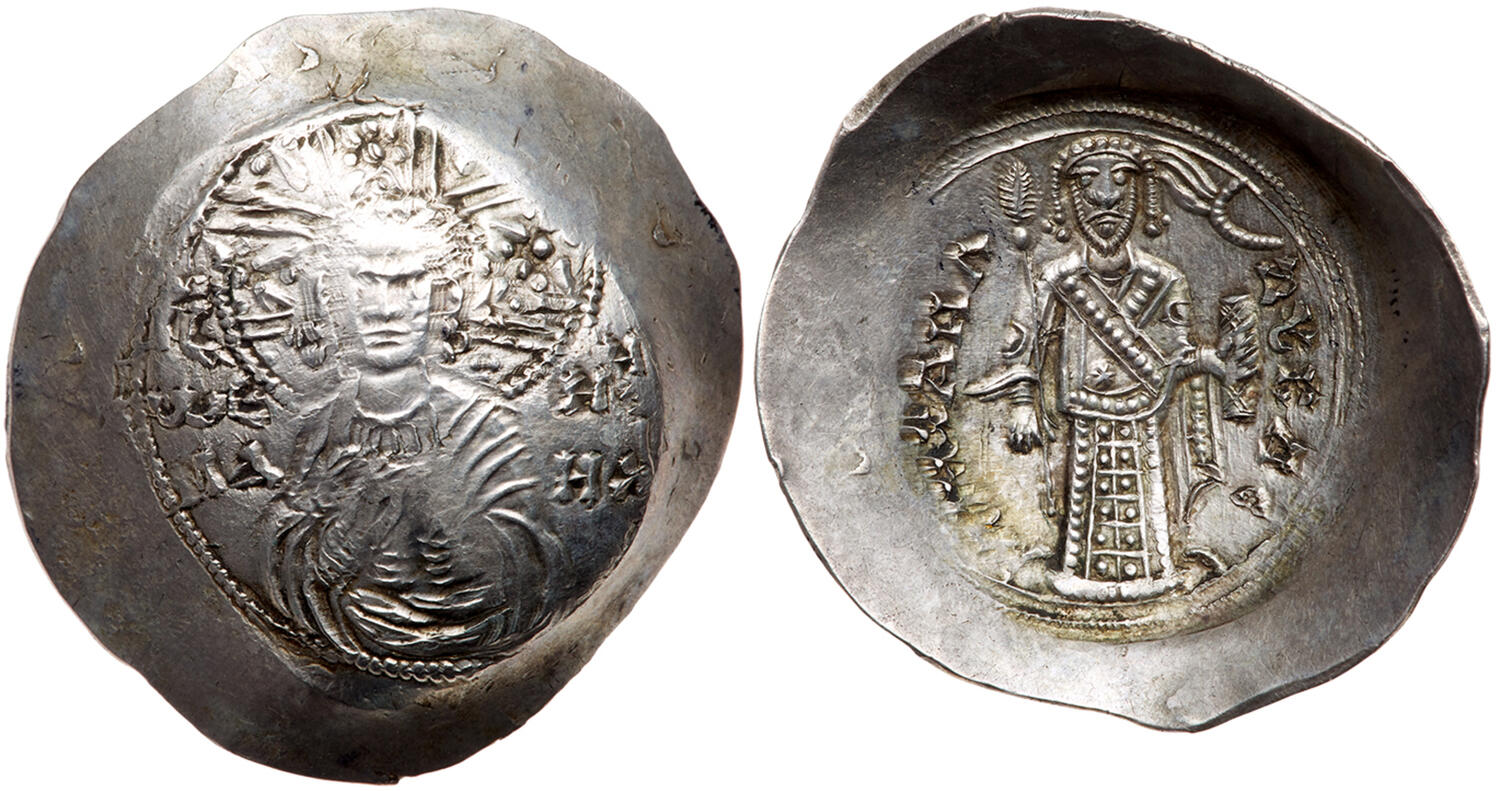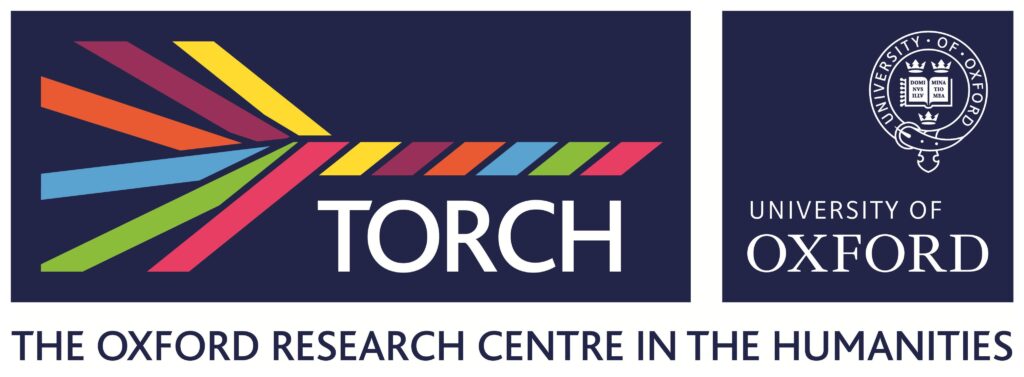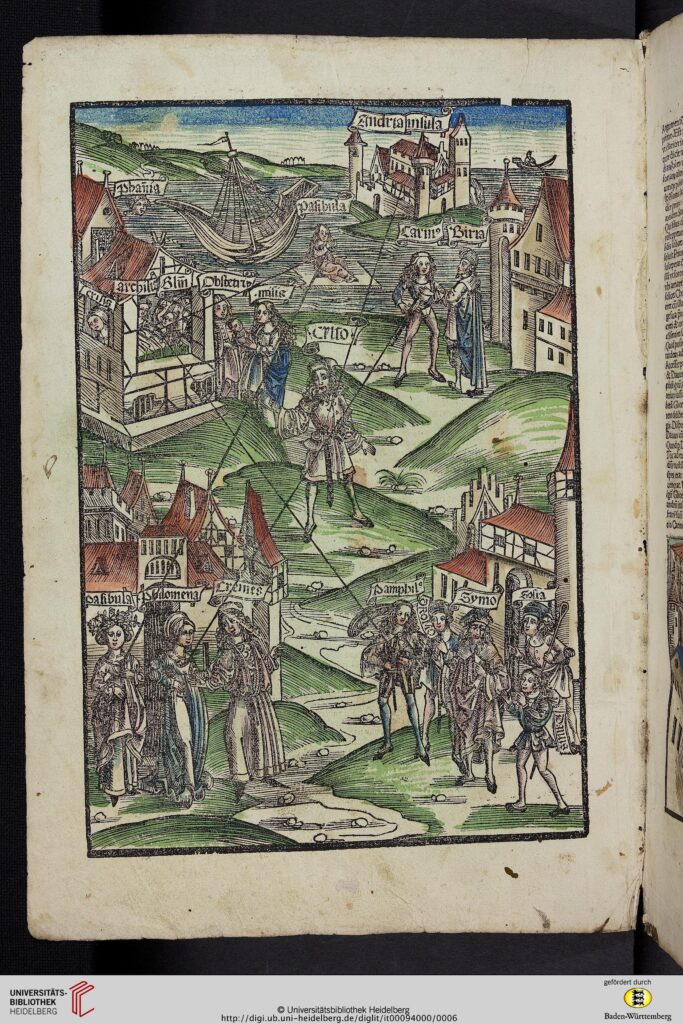The research project “The Seven Sages of Rome Revisited: Striving for an Alternative Literary History” invites applications for one doctoral research associate: FU Berlin advertisement of the position
The project is funded by the Einstein Foundation Berlin as part of the Berlin University Alliance/Oxford University Einstein Visiting Fellowship scheme. The selected postholder will work closely with the PIs of the project, Professor Dr Jutta Eming, Freie Universität Berlin and Dr Ida Tóth, University of Oxford (Einstein BUA/Oxford Visiting Fellow 2024-27).
Please note that the application deadline is 20 August 2024.
The position is funded by the Einstein Foundation Berlin as part of the Berlin University Alliance/Oxford University Einstein Visiting Fellowships scheme. The Doctoral Research Associate will participate in the project “The Seven Sages of Rome Revisited: Striving for an Alternative Literary History”. The selected postholder will be jointly supervised by the PIs of the project, Professor Dr Jutta Eming, Freie Universität Berlin and Dr Ida Toth, University of Oxford (Einstein BUA/Oxford Visiting Fellow 2024-27).
The research project “The Seven Sages of Rome Revisited: Striving for an Alternative Literary History” focuses on one of the most popular and least studied works of pre-modern world literature. Transmitted in over thirty languages and attested through hundreds of manuscripts and early printed editions, this tradition provides ample scope for exploring the extant material from textual, intercultural, and intersectional literary perspectives. The Einstein BUA/Oxford research project proposes to undertake an interdisciplinary, collaborative and comparative philological, literary, and cultural analysis in Byzantine/Medieval Latin and Medieval German and Early Modern Studies. Its goal is to reassess and redefine the traditional approach to the SSR and to medieval literature in general.
Job description:
The Doctoral Research Associate will study one specific set of motifs – Wisdom, Power, and Gender – that is common to all surviving traditions of the Seven Sages in the German and/or Greek textual tradition. The main duty will be to conduct research on a doctoral project designed along these research lines. The postholder will work under the direction of Professor Dr Jutta Eming and Dr Ida Toth as well as collaborating with the other members of the research group. The postholder will assist in planning and organisation of scholarly events (lectures, seminars, workshops, outreach programmes), in publication projects, and will play a key role in securing the online visibility and digital presence of the project.
This is an exciting opportunity for a highly motivated doctoral candidate with strong interests in wisdom literature, intersectionality, and concepts of power. The successful candidate will join a team of textual and literary scholars, who play an active role in the current efforts to reassess traditional literary canons and to create an alternative, and much more nuanced, understanding of pre-modern global literary history.
Requirements:
• A Master’s degree qualification (MA, MSt, MPhil or the equivalent) in a subject/field relevant to the Project (German Studies, Byzantine Studies/Medieval Latin)
Desirable:
• Above-average Masters’ degree grade
• Doctoral project on the Seven Sages of Rome
• Excellent command of the spoken and written English language
• Demonstrable interest in the project’s focus area (Wisdom – Power – Gender)
• Ability to work independently
• Commitment to team-building and teamwork
• Willingness to engage in interdisciplinary exchange
Application materials:
• An application letter/statement of purpose (one page)
• An outline of the planned dissertation project (two pages)
• A curriculum vitae with list of publications (if applicable)
• Official transcripts of all previous degrees and university diplomas
• A copy of master’s thesis or a sample of written work (max. 25 pages)
How to apply:
Your application materials should state the identifier Predoc_JE_BUA_SSoR_2_24. They should be combined in a single PDF document and sent electronically to Ms Sylwia Bräuer (s.braeuer@fu-berlin.de). Two letters of recommendation from university-level teachers should be submitted separately. They should be addressed and emailed to the project PIs Jutta Eming (j.eming@fu-berlin.de ) and Ida Toth (ida.toth@history.ox.ac.uk).
Report on the Oxford-Berlin Workshop ‘The Seven Sages of Rome as a Global Narrative Tradition’
11-12 November 2022, organised by Ida Toth (Oxford) and Jutta Eming (Berlin)
The Seven Sages of Rome (SSR) is a title commonly used for one of the most widely distributed pre-modern collections of stories, which – remarkably – also happens to be barely known today, even among medievalists and early modernists. Several early versions of the SSR exist in Greek (Syntipas), Arabic (Seven Viziers), Hebrew (Mishle Sendebar), Latin (Dolopathos, Historia septem sapientum), Persian (Sindbād-nameh) and Syriac (Sindbād) as well as in the later translations into Armenian, Bulgarian, Czech, Danish, Dutch, German, English, French, Hungarian, Icelandic, Polish, Russian, Scottish, Serbian, Swedish, Spanish, Romanian, Turkish and Yiddish. The multilingual traditions of the SSR, with their many intercultural links, cannot be adequately understood within the current division of research disciplines into distinct medieval and modern linguistic areas. To mend this deficiency, the workshop has invited specialists in affiliated fields to address the problems of surveying the long history of creative adaptations associated with the SSR. The participants will consider the complexities of the philological, literary, and historical analysis of the SSR in many of its attested versions across the pre-modern and early modern periods. The workshop is envisaged as a forum for a robust discussion on possible ways of advancing the current scholarship of the SSR, and as an opportunity to strengthen the inter-institutional collaboration involving specialists based at the universities in Oxford and Berlin, and more broadly.
The workshop will start with a session in the Weston Library on Friday morning where the group will meet other Oxford medievalists at the Coffee Morning, followed by a view of special collections in the library. While this is for speakers only, their is limited capacity to attend the following talks at the Ioannou Centre. If interested, please contact the workshop co-ordinator Josh Hitt.
FRIDAY, 11 NOVEMBER 2022, THE IOANNOU CENTRE
- 2 pm – 3 pm: Beatrice Gründler, Kalīla and Dimna – AnonymClassic: Methodology and Practical Implementations (via Zoom, 1st-fl Seminar Room)
- 4 pm – 5 pm: Daniel Sawyer, Forgotten books: The application of Unseen Species Models to the Survival of Culture (In person, Outreach Room)
SATURDAY, 12 NOVEMBER 2022, THE IOANNOU CENTRE
10 am – 11.30 am
- Jutta Eming, The Seven Sages of Rome in Literary History and Genre Theory
- David Taylor, Re-examining the Evidence of the Syriac Book of Sindbād
- Ida Toth, The Byzantine Book of Syntipas: Approaches and Directions
- Emilie van Opstall, The Representation of Women in Byzantine Syntipas and Latin Dolopathos
12 pm – 1.30 pm
- Bettina Bildhauer, Consent in the German Version of the Seven Sages of Rome
- Rita Schlusemann, Genre, Dissemination and Multimodality of the Septem sapientum Romae, especially in Dutch and German
- Niko Kunkel, Statistics and Interpretation: Annotating the German Sieben Weise Meister
- Ruth von Bernuth, Yiddish Seven Masters
4.30 pm: Tea and a guided tour of St Edmund Hall with Henrike Lähnemann
5.45 pm: Evensong at New College
Appendix: List of manuscripts and early printed books in the Bodleian Library:
- Arabic: Pococke 400
- Greek: Barocc. 131 and Laud. 8
- Armenian: MS. Arm. e. 33 and MS. Canonici Or. 131
- Hebrew (Mishle Sendebar/Fables of Sendebar): MS. Heb. d. 11 (ff. 289-294) and MS. Bodl. Or. 135 (ff. 292-300r)
- Yiddish: Opp. 8. 1115 Mayse fun Ludvig un Aleksander and Opp. 8. 1070 Zibn vayzn mansters fun Rom
- Welsh Jesus College MS 111
- Middle English: B. Balliol College MS. 354
- English, early printed book: The History of the Seven Wise Masters of Rome. Now newly Corrected better Explained in many places and enlarged with many pretty Pictures etc. London, Printed for John Wright, next to the Globe in Little-Brittain, 1671
Image: British Library, Add. MS. 15685, f. 83r (XIV century, Venice)







